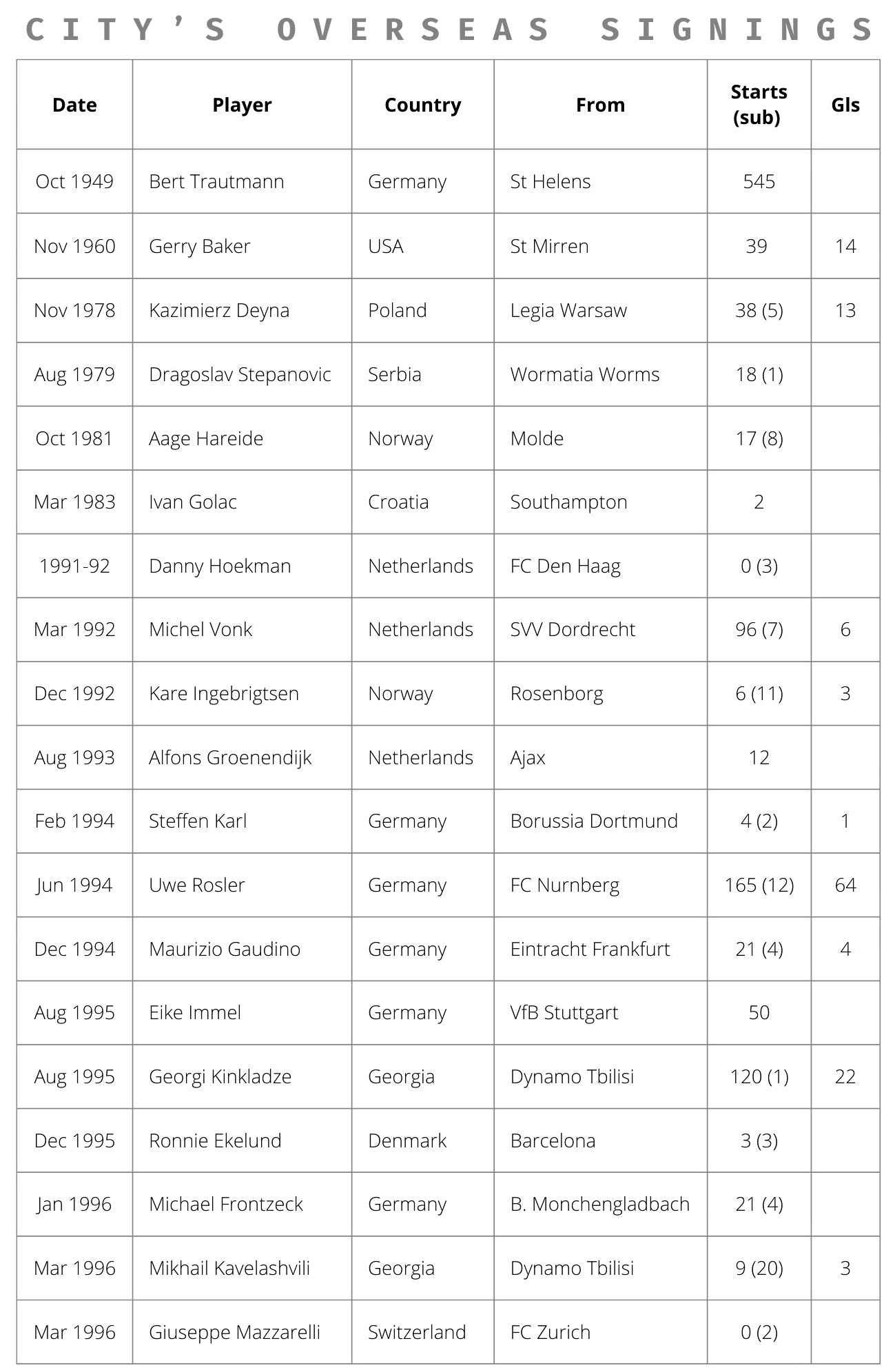Who Was The First Overseas Player At City?
And it's not the legendary Bert Trautmann surprisingly, but a Canadian named Walter Bowman, who signed for City in August 1892. In fact, Bowman was the first foreigner to play League football in Britain after he signed for Accrington the previous season.
Born in Waterloo, Ontario in 1870, he arrived in Britain in 1888 with Team Canada, who played 23 games between 1 September and 31 October, including a 2-0 win over Newton Heath.
Bowman, who played on the right wing, scored on his City debut against Crewe on 18 February 1893, then scored again in his only other League game that season on 4 March. He went on to make 49 appearances for the club, but only scored one more.
Although overseas players were extremely rare in British football in the first part of the 20th century, in June 1931 the FA still saw fit to ban all foreigners from playing professionally in England. According to Charles Sutcliffe, a powerful FA official who later became president of the League:
"The idea of bringing foreigners to play in league football is repulsive to the clubs, offensive to British players and a terrible confession of weakness in the management of a club….It will be a bad day for club managers when they have to cultivate team spirit in a team of players where some would not understand a word said to them."
An exception to the rule was foreign nationals who had lived in England for two years, which allowed former Prisoner of War Bert Trautmann—the first foreigner to win the Footballer of the Year award in 1956—to play here.
Our next foreign signing, forward Gerry Baker, also represents a football first. Born in New York to Scottish parents, Baker grew up in Scotland but played for the US national side. Gerry's younger brother, Joe, played for England despite having played for Scotland schoolboys. That is believed to be the first time brothers have played in two separate international sides.
Baker made his debut for City on 5 November 1960, after signing from St Mirren. City lost the first seven consecutive games he played in, but two goals from him on 24 December against Fulham finally secured a win.
The FA’s no-foreigner rule stayed in place until 1978, when the European Economic Community (now the EU) declared that it contravened the principles of free movement enshrined in the 1957 Treaty of Rome. This quickly led to one of the most unusual transfer deals in City’s history: the signing of Poland’s World Cup captain Kazimierz Deyna in August 1978.
The 31-year-old Deyna, who played for military side Legia Warsaw, was a captain in the Polish army. That meant he needed permission from the Polish Ministry of Defence to be demobilized and leave the country. After tense negotiations with Polish generals in Warsaw, in which George Bergier, the Polish manager of the wine bar at Manchester’s Midland Hotel, acted as the City’s translator, a deal was agreed. Owing to exchange controls between the two countries, the player was exchanged for a consignment of medical and office equipment, including typewriters, worth £125,000.
Here are the overseas players who have played for City since Bowman, up to the end of Alan Ball’s time as manager. Irish players, who historically have been allowed automatic residency in Britain, are not included.
Next Wednesday I’ll take it up to the present day and tell you which nationalities have made the the most appearances, and scored the most goals.
This is an extract from my new book, 50 Important Questions About Manchester City F.C Answered, available on Amazon here, priced £12.95.
I want to keep this Substack free to read. So if you like my work, buying this book is a great way of supporting it. Plus, I think you’ll really enjoy it.
I hope it will provide the answers you’re looking for.
You can subscribe for free, or upgrade to a paid subscription, by clicking the button below. Paid subscribers will get an exclusive story each Monday.
Or if you want to help out with a one-off donation you can Buy Me A Coffee.



